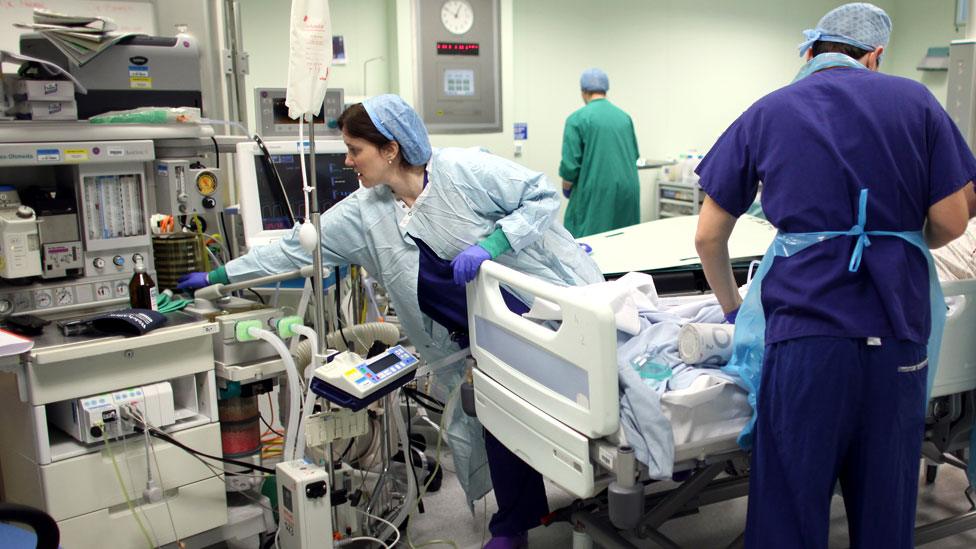Junior doctors' strike puts patients at more risk - Barclay
- Published
- comments
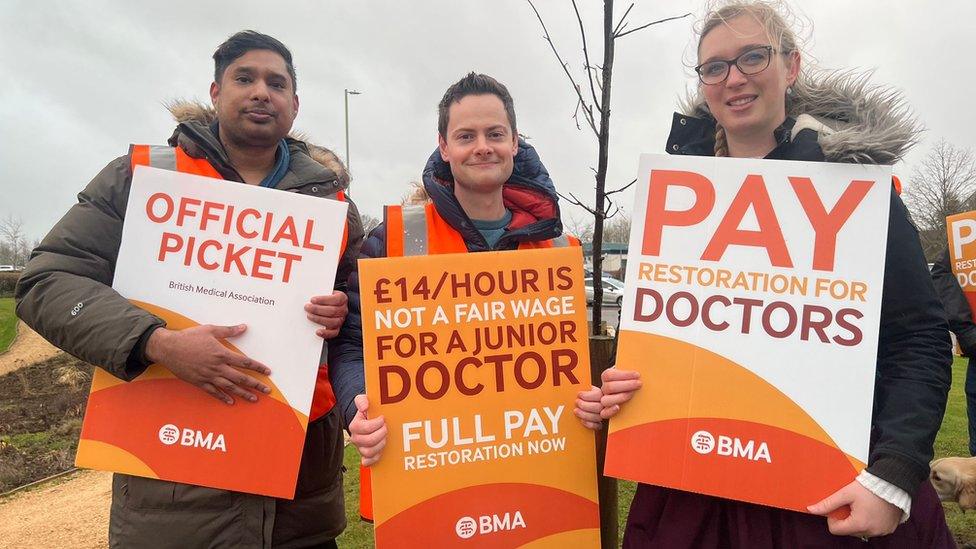
A four-day walkout by junior doctors across England straight after the Easter break is putting patients at "greater risk", says Health Secretary Steve Barclay.
More than a quarter of a million appointments and operations could be cancelled in the strike that began this morning.
The British Medical Association is asking for a 35% pay rise.
But the government says that is an unreasonable request.
Mr Barclay accused organisers of timing the strike just after the Bank Holiday Easter weekend - a period when the NHS already faces increased demand and greater staff absence - "to maximise disruption".
The BMA said there were plans to pull doctors off picket lines if lives were in immediate danger. Under trade union laws, life-and-limb cover must be provided.
The junior doctors' approach contrasts with recent strikes by nurses and ambulance workers, which saw unions agree to exempt certain emergency services.
But doctors say they are striking for patient safety as much as about pay, saying that current pay levels are affecting recruitment and leading to many doctors leaving the profession.
Dr Emma Runswick, deputy chairwoman of the BMA, said they are hoping this round of industrial action will be the last - but "we will continue" if the government does not move.
She told BBC One's Breakfast. "This is not a situation where we are fixed in our position. We are looking for negotiations and Steve Barclay isn't even willing to talk to us.
"He hasn't put any offer at all on the table. If we want to start a negotiation there has to be two sides in the discussion."
Mr Barclay said he had hoped to begin formal pay negotiations with the BMA last month but said its demand for a 35% pay rise was unfair and would result in some junior doctors "receiving a pay rise of over £20,000".

Are you a junior doctor with a view on the strike? Are you a patient affected? Share your experiences by emailing haveyoursay@bbc.co.uk, external.
WhatsApp: +44 7756 165803, external
Tweet: @BBC_HaveYourSay, external
Please read our terms & conditions and privacy policy

Prof Sir Stephen Powis, NHS England's national medical director, said it would be "the most disruptive industrial action in NHS history, external".
Speaking to BBC Radio 4's Today programme as the walkout began on Tuesday morning, Mr Powis warned it "will take weeks" to recover from the strikes as "services will undoubtedly be affected".
During last month's three-day walkout by junior doctors, more than 175,000 treatments and appointments were cancelled.
But Prof Sir Stephen added the expectation is to see "considerably more" cancellations this time around due to the strike lasting four days. Estimates from other senior NHS figures have suggested between 250,000 and 350,000 appointments and operations could be cancelled.
Mental health services and some GP surgeries are also expected to be impacted, while the NHS said it will prioritise keeping critical care, maternity, neonatal care, and trauma operations running.
Dr Vivek Trivedi, co-chairman of the BMA junior doctors' committee, advised people to still ring 999 if they have a life-threatening illness as "the service is working as normal and we have prioritised emergencies".

The patients left in limbo
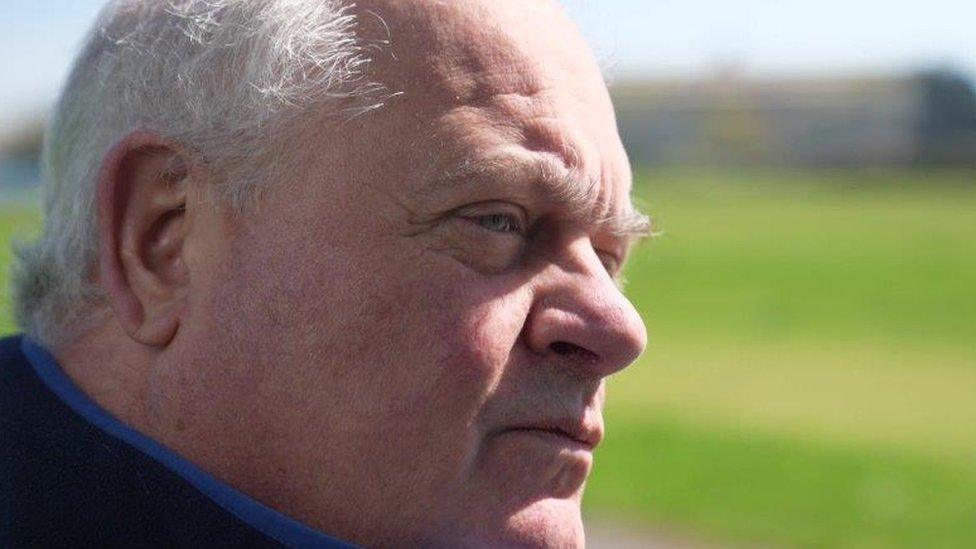
Dr Paul Turnbull, 61, from Hampshire, who is an occupational health doctor, needs a prosthetic femur bone implanted in his leg.
His operation has been cancelled twice - once in December, because he developed deep vein thrombosis, and the second time because of the first junior doctors' strike. The operation is now due to take place on 18 April, after the four-day strike.
He has limited mobility and is unable to work.
"As a doctor, I don't believe doctors should strike. I think our first responsibility is to our patients and I think using patients as pawns in a dispute with the government is not something we should be doing."
Neuroscientist Dr Camilla Hill, 42, from Nottingham, has also been affected. She has had two knee operations cancelled because of the junior doctors' strikes - one this week and one back in March. She now has a third date scheduled for 25 April.
She has been unable to do some of her favourite hobbies, which include hiking and sailing, in part because of the pain in her knees.
"I feel really frustrated. It's messed me about, it's messed about my employer, it's messed about my husband - and it's messed about his employer as well. It's not just the patient whose operation is cancelled that's impacted, it's everybody around them."

Junior doctors say their demanding for a 35% increase in pay is to compensate for 15 years of below-inflation wage increases.
But the government has said the pay demand is unrealistic, pointing to the deal other health unions - representing nurses and other workers - have recommended to their members, which includes a 5% pay rise and one-off payment of at least £1,655.
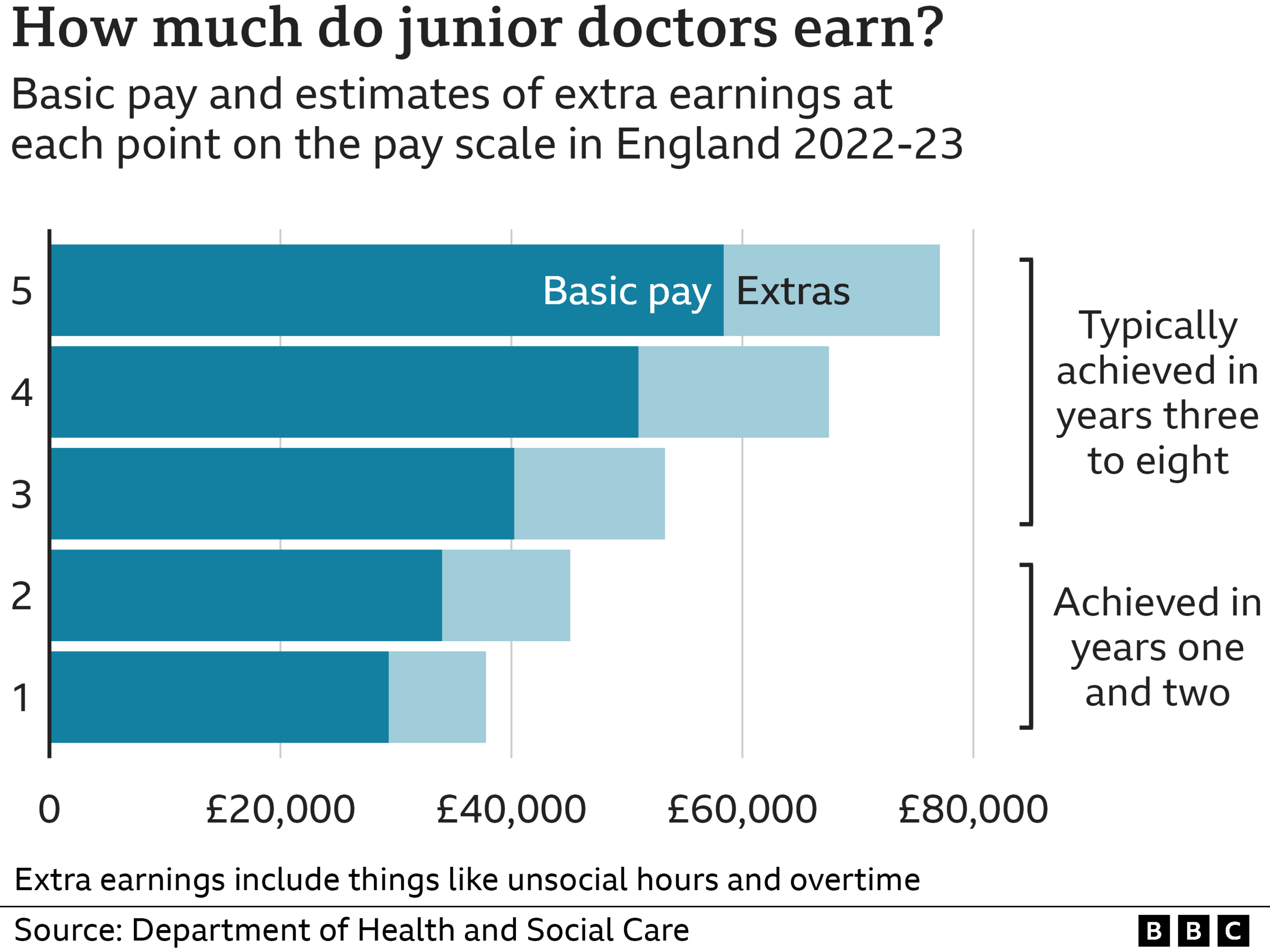
More than 40% of the medical workforce are classed as junior doctors, with two-thirds of them members of the BMA.
The term junior doctors covers those who are fresh out of medical school through to others who have a decade of experience behind them.

'Stretched to our limits' - junior doctors
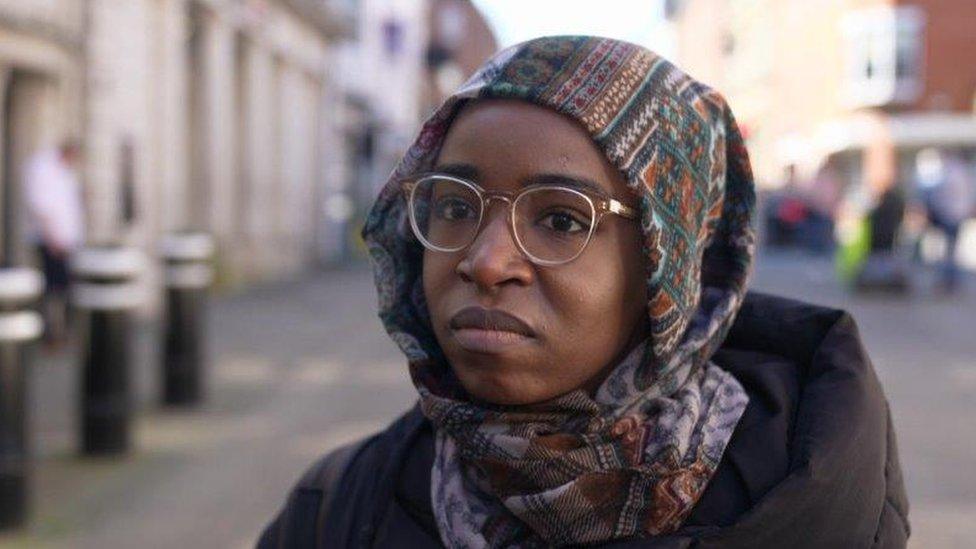
Rabiat is in her third year of junior training, working in a hospital in the south east of England.
She is planning on striking this week, saying it is as much about safety as it is pay.
"It's quite a common thing that junior doctors are left alone with wards of patients to look after, with their seniors having gone down to A&E or an acute assessment area, for example.
"We feel really left out and unsupported. Not because our seniors don't want to support us, but because we are all stretched to our limits.
"I really hope that the strikes will make the government realise that this is really having a big impact on junior doctors - and the whole of the NHS - and more actually needs to be done."

Additional reporting by Sean Seddon, Rachel Russell and Kris Bramwell.
- Published4 March 2023
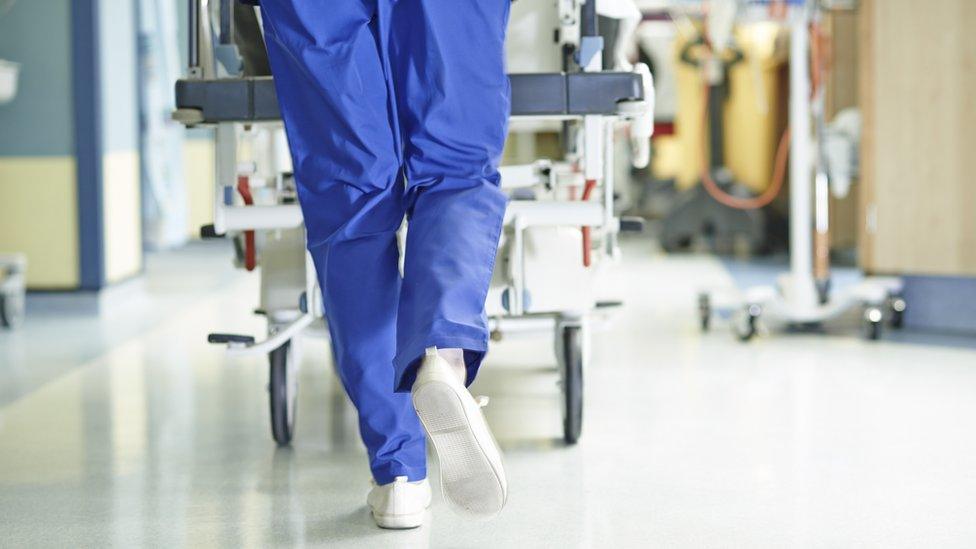
- Published9 August 2022

- Published10 August 2022
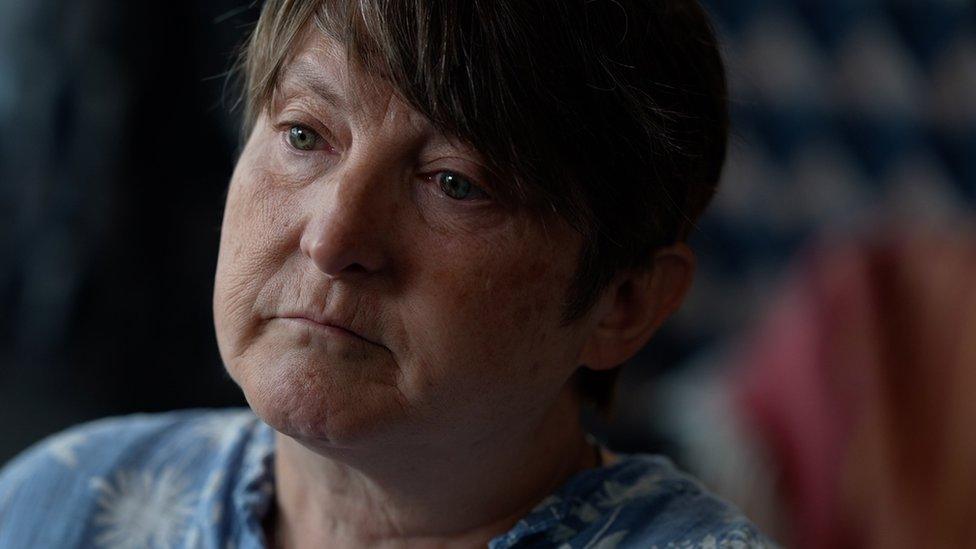
- Published22 July 2022
